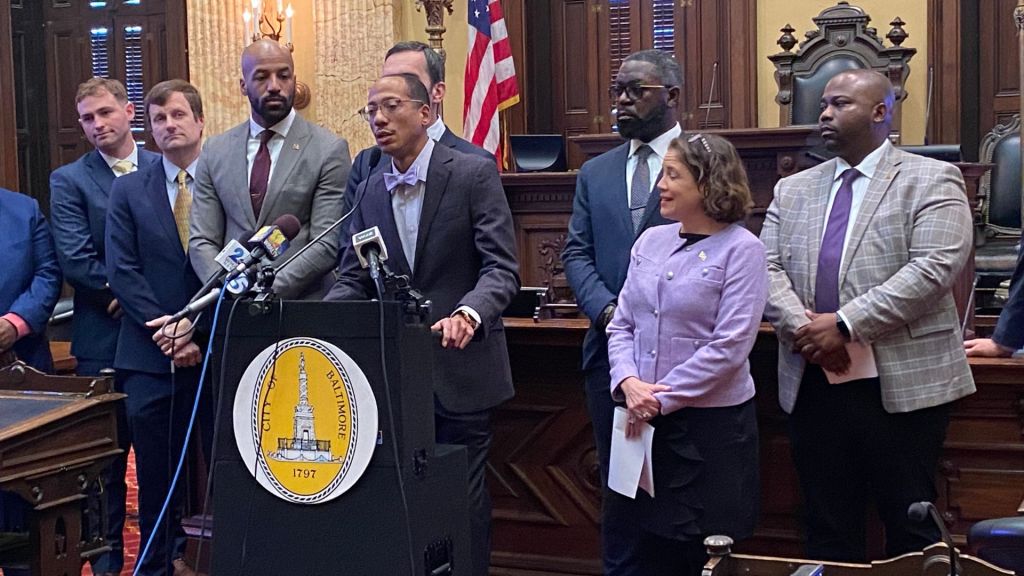By Tashi McQueen
AFRO Staff Writer
tmcqueen@afro.com
Council President Zeke Cohen (D) and several other council members recently laid out key legislation for the 74th term of the Baltimore City Council.

“We are going to be immensely focused on quality of life,” said Cohen during a press conference at Baltimore City Hall. “We are going to uplift the voices of Baltimoreans. We are going to make sure our children are getting the greatest education imaginable. We are going to make sure we are conserving and preserving our historic neighborhoods.”
Councilman Mark Conway (D-District 4) talked about the intent of his bill, saying it requires the Baltimore City school system to explore the underlying causes of student absences and work with city agencies to initiate comprehensive solutions.
“The report is going to analyze data from the 2023-2024 school year, focusing on factors such as class, parent involvement, transportation and types of schools to determine the reason why folks are not going to school and how they can improve,” said Conway.
Conway says with this bill they aim to create “targeted measures that will help to improve school attendance.”
Other pieces of legislation that were highlighted during the press conference included, establishing a study to defeat the root causes of truancy in Baltimore City, creating a consumer protection agency to safeguard residents and evaluating reforms to the city’s permitting process.
“We know that in the past, our history has often excluded certain groups of people and certain neighborhoods,” said Cohen. “This city has such a rich and unique and vibrant history. It’s so important that we not just provide historic designations to neighborhoods like Canton or Fells Point that are thriving and are amazing, but that Black Baltimore is recognized in our conservation districts as well.”
Councilman John T. Bullock (D-District 9) is the lead sponsor for the bill that aims to create conservation districts.
“We’re talking about maintaining the historic character of a neighborhood, which means everything from exterior doors, windows and bricks and roofs,” said Bullock.
Bullock said the bill could help sustain the “rich” history of specific neighborhoods such as Rosemont and Coppin Heights.
According to Baltimore Heritage, an architectural and historic preservation nonprofit, “sixty years later Greater Rosemont illustrates not only the resilience of these neighborhoods but the challenges that characterize many older parts of the city today. Unquestionably, Greater Rosemont is a part of the city whose history illustrates the role of ‘race and place.’”
According to U.S. Census data from 2010, 97.1 percent of Rosemont residents were Black and 0.7 percent were White.
Bullock said if the bill passed, this initiative would occur through a community-driven approach. Through this bill, community members would be able to communicate to their council members what buildings and structures they want preserved.
“This is just the start of some legislation that you’re going to see tonight and throughout this term,” said Cohen. “I could not be more excited to work with the colleagues that are here today, as well as our other colleagues, Mayor Brandon M. Scott and his administration, to make this Baltimore’s moment.”
The post Baltimore City Council members outline legislative priorities for 74th term appeared first on AFRO American Newspapers.











